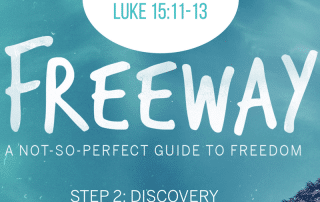[vc_row height=”small” el_class=”dailyBody” css=”.vc_custom_1465516518912{margin-top: -25px !important;}”][vc_column width=”1/4″][us_separator height=”10px” size=”custom”][us_image image=”32793″ size=”tnail-1×1″][ultimate_heading main_heading_color=”#5fc8d7″ sub_heading_color=”#5fc8d7″ alignment=”left” main_heading_font_family=”font_family:Allerta|font_call:Allerta” main_heading_style=”font-style:italic;” main_heading_font_size=”desktop:16px;” sub_heading_style=”font-style:italic;,font-weight:bold;” sub_heading_font_size=”desktop:16px;” main_heading_line_height=”desktop:15px;” sub_heading_line_height=”desktop:22px;”]
[/ultimate_heading][us_separator height=”20px” size=”custom”][us_sharing providers=”email,facebook,twitter,gplus”][/vc_column][vc_column width=”3/4″][vc_column_text]
Luke 15:11-32: 11 And he said, “There was a man who had two sons. 12 And the younger of them said to his father, ‘Father, give me the share of property that is coming to me.’ And he divided his property between them. 13 Not many days later, the younger son gathered all he had and took a journey into a far country, and there he squandered his property in reckless living. 14 And when he had spent everything, a severe famine arose in that country, and he began to be in need.15 So he went and hired himself out to one of the citizens of that country, who sent him into his fields to feed pigs. 16 And he was longing to be fed with the pods that the pigs ate, and no one gave him anything.
17 “But when he came to himself, he said, ‘How many of my father’s hired servants have more than enough bread, but I perish here with hunger! 18 I will arise and go to my father, and I will say to him, “Father, I have sinned against heaven and before you. 19 I am no longer worthy to be called your son. Treat me as one of your hired servants.”’ 20 And he arose and came to his father. But while he was still a long way off, his father saw him and felt compassion, and ran and embraced him and kissed him. 21 And the son said to him, ‘Father, I have sinned against heaven and before you. I am no longer worthy to be called your son.’ 22 But the father said to his servants, ‘Bring quickly the best robe, and put it on him, and put a ring on his hand, and shoes on his feet. 23 And bring the fattened calf and kill it, and let us eat and celebrate. 24 For this my son was dead, and is alive again; he was lost, and is found.’ And they began to celebrate.
25 “Now his older son was in the field, and as he came and drew near to the house, he heard music and dancing. 26 And he called one of the servants and asked what these things meant. 27 And he said to him, ‘Your brother has come, and your father has killed the fattened calf, because he has received him back safe and sound.’ 28 But he was angry and refused to go in. His father came out and entreated him, 29 but he answered his father, ‘Look, these many years I have served you, and I never disobeyed your command, yet you never gave me a young goat, that I might celebrate with my friends. 30 But when this son of yours came, who has devoured your property with prostitutes, you killed the fattened calf for him!’ 31 And he said to him, ‘Son, you are always with me, and all that is mine is yours. 32 It was fitting to celebrate and be glad, for this your brother was dead, and is alive; he was lost, and is found.’
You may have heard this story many times, as I have. It’s truly an amazing story Jesus crafted to tell the Pharisees. There is so much to marvel and meditate on in it. For all the sermons and studies on it over the years it seems there is always more to discover. Let’s just focus on one thought today as we begin a series on the prodigal son. Let’s ponder the turning point in the story, the miraculous moment where the light appears. The power of this moment brings an awareness so important it demands action. It is transformational, it changes the story. Can you remember the last time a flash of insight came to you and changed your thinking and or actions? I remember a flash of insight about God’s love as a college freshman that changed me forever.
The turning point for the prodigal is his realization that he can turn, he can go back and be with his father. Verse seventeen is often translated “when he came to his senses” or “when he came to himself”. He realized those in relationship to his father received the father’s generosity and he was starving. He becomes aware of his sin and his father’s goodness, love, care, and blessings. The revealing light of his insight is the awareness he actually could go back to his father and leave the self-inflicted brokenness, pain, and misery. Instead of wallowing in sin, he could turn around and change. He has a place he can go to be healed and find wholeness again. He realizes the character of his loving father is worth the effort to turn back and return to him.
The prodigal son’s life changing insight can become our transformational insight. This story invites us to be like the prodigal son as we look at where we are at and realize who and what we are. It invites us to become aware of who God is in relation to ourselves. God’s goodness is continually available, his welcome is always extended toward us no matter how sinful we might feel. He is always reaching out to us in love and acceptance. God the Father’s presence has never left us, even though we might have left him. You might be reading this story for the first time and are realizing the invitation extended to you from God has always been there. You might have read this story hundreds of times and are having new insight. Don’t miss the moment!
Today, write a letter of invitation from God’s perspective to yourself. Let your realization of the awareness of his loving relationship toward you fill your day with hope and joy. His welcome, his goodness, his loving invitation to a restored relationship is always extended to you.
Ezekiel 34: 11-15 “For thus says the Lord God: Behold, I, I myself will search for my sheep and will seek them out. 12 As a shepherd seeks out his flock when he is among his sheep that have been scattered, so will I seek out my sheep, and I will rescue them from all places where they have been scattered on a day of clouds and thick darkness. 13 And I will bring them out from the peoples and gather them from the countries, and will bring them into their own land. And I will feed them on the mountains of Israel, by the ravines, and in all the inhabited places of the country. 14 I will feed them with good pasture, and on the mountain heights of Israel shall be their grazing land. There they shall lie down in good grazing land, and on rich pasture they shall feed on the mountains of Israel. 15 I myself will be the shepherd of my sheep, and I myself will make them lie down, declares the Lord God.”
[/vc_column_text][us_separator height=”25px” size=”custom”][vc_column_text]
By Donna Burns
[/vc_column_text][us_separator height=”25px” size=”custom”][vc_row_inner][vc_column_inner width=”1/2″]
[/vc_column_inner][vc_column_inner width=”1/2″]

[/vc_column_inner][/vc_row_inner][/vc_column][/vc_row]
 [/vc_column_inner][/vc_row_inner][/vc_column][/vc_row]
[/vc_column_inner][/vc_row_inner][/vc_column][/vc_row]











